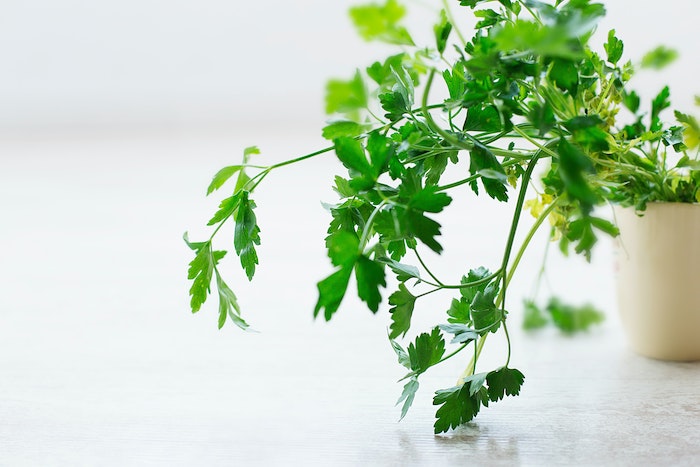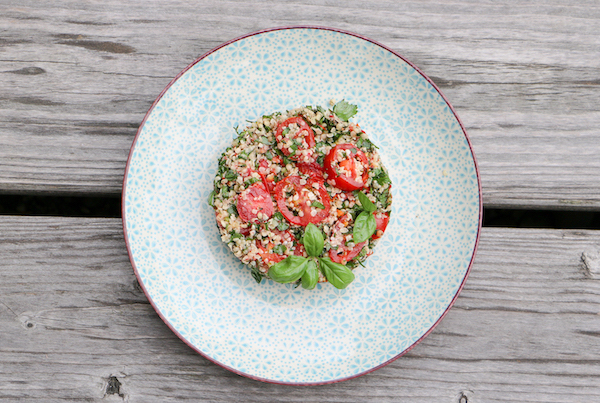Have you been wondering: if bitter substances are so important, then why are they becoming less and less common in our diets today? Well we’ve taken a look into the matter.
It’s true, a lot of people might pucker their mouths when eating bitter foods like chicory, endive, or dandelion. And no wonder, because we’re barely used to these bitter substances anymore. Yet not only are these phytonutrients healthy, but they’re actually extremely important for our entire digestive process.
Why Do We Like Sweet and Not Bitter?
While most people can never get enough of sweets, there are few who are seized by a desire for parsley, endive, or even wild herbs like dandelion or goutweed. And as it happens, there’s a reason for this desire of sweetness and rejection of bitterness:
Sweet beats fast energy
The fact that we like to eat sweets so much is in our genes, so to speak. In the times when humans were still roaming around as hunter-gatherers, we learned that a sweet taste means quick energy, in the form of simple carbohydrates. Back then, there were no isolated sugars, which today can be found in large quantities in sweets, soft drinks, and other industrial products, awakening an internal desire for more and more – which can lead to a real sugar addiction. Back then, small wild apples or berries, which had a subtle sweetness, were the main source of the simple sugar fructose, and gave gatherers a quick and healthy energy boost.
Sweet breast milk
Breast milk also tastes sweet. So even as infants, we learn to associate sweetness with positive feelings. This first food of life ensures survival, satisfies hunger, and establishes a connection with the mother. It’s not surprising, then, that sweet things also trigger a pleasant feeling of safety and security in adults.
Bitter can also be poisonous
A bitter taste, on the other hand, can often mean that a plant is poisonous. So the general skepticism towards a bitter taste stems from primeval times. If the bitter receptors on the tongue were stimulated when biting into a plant, this indicated to gatherers that the potential food could be poisonous. This warning sign is still anchored in our genes today. Although we rarely encounter poisonous plants and generally no longer need this natural protective mechanism, it’s still active. But here’s the main reason why so many people don’t like bitter: they’re simply no longer used to the taste.
The good news
It’s just as possible to get back into the habit of liking bitter again as it is to wean ourselves off the craving for sweet.

Why Are There Fewer Bitter Substances in Today’s Diet?
Not everything that’s bitter is also poisonous. In fact, not only do bitter substances have a variety of positive effects on our digestion, but on our entire metabolism. Unfortunately, these health aspects have been neglected over the last few decades.
Spread of sugar
Today, most people only know the taste of bitterness from beer and coffee. And there’s a reason for this: With the spread of industrial sugar, our taste buds have been increasingly reprogrammed to sweetness. Industrial manufacturers added sugar to every product, and as a result, consumers got used to the strong sweetness and decided that bitter was unpleasant.
Agriculture: Bitter substances bred out
Farmers also joined this trend by breeding bitter substances out of a lot of vegetable and cereal varieties, instead relying on sweeter varieties to make sales. As a result, the healthy bitter substances were increasingly removed from the average diet, causing the body to lose out on the benefits.
The proliferation of sugar in the food industry reprogrammed people’s taste buds more and more to sweet. This prompted farmers to breed increasingly more bitter substances out of vegetables and grains.
Are you interested in gaining a comprehensive understanding of the health benefits of a plant-based diet? Download the curriculum for our Holistic Nutrition Coach training program.
What Are Bitter Substances Good For?
There are a number of secondary plant compounds that are grouped together as bitter substances, including cynarin (e.g. from artichokes), lactucin (e.g. from endive) and naringin (e.g. from grapefruit). They improve digestion, prevent disease, reduce cravings for sweets, regulate appetite, and can help with various gastrointestinal complaints.
Promote digestion
Here’s the best thing that can happen to our digestion: our taste buds encountering bitter. No other taste sets so many processes in motion as this one does.
At the very first contact, our bodies respond by producing more saliva, increasing hydrochloric acid production in the stomach, and sending signals to the liver, gallbladder, and pancreas to ensure that everything is ready for good utilization and absorption of nutrients – especially for fat digestion.
We’ve known for a long time that healthy digestion is the basis for good health. Only when it functions in the best way can the body absorb all the nutrients it needs and effectively eliminate toxins.
Effects of Bitter Substances on the Body
- Bitter substances promote the formation of enzyme-rich digestive juices: they activate saliva, gastric acid, pancreatic juices, and especially the production of bile acid for fat digestion.
- Prevent gallstones
- Regulate blood sugar (1)
- Lower elevated blood fat levels (2)
- Help maintain a healthy weight (3)
- Prevent cardiovascular diseases (4)
- Reduce cravings for sweets
- Assist the liver in detoxification
- Have an antioxidant effect, which means they scavenge free radicals and thus protect cellular health
- Regulate acid-base balance
- Relieve abdominal pain, flatulence, and bloating
Bitters have numerous positive effects on health: they stimulate digestion, prevent diseases, and help with gastrointestinal complaints.

Which Foods Contain Bitter Substances?
Even though more bitter substances could easily be found in plant foods back then, today there are still a number of plants that provide us with these healthy substances – most notably our native wild herbs.
These foods are rich in bitter compounds:
- Grapefruit, pomegranate
- Artichokes, olives
- Brussels sprouts, cauliflower, broccoli, and all cabbage varieties
- Chicory, endive, radicchio
- Turmeric, cinnamon, ginger
- Peppermint, thyme, rosemary
- Dandelion, yarrow, etc.
- Dark chocolate
- Coffee, green and black tea
Wild plants, cabbage, and leafy green salads all especially contain bitter substances. People who eat a lot of plant foods and use herbs and natural spices automatically consume more bitter substances.
Maja Biel (Author)
Ecotrophologist, food journalist and nutritionist. Maja has her own practice and supports Your Nutrition Academy with her expertise.
Tip for practical implementation:
Hemp Seed Tabbouleh
Would you like to join our unique, based on nutritional sciences and practice-oriented training program for gaining a high level of health?
We are more than happy to inform you about our training program on our website!





0 Comments